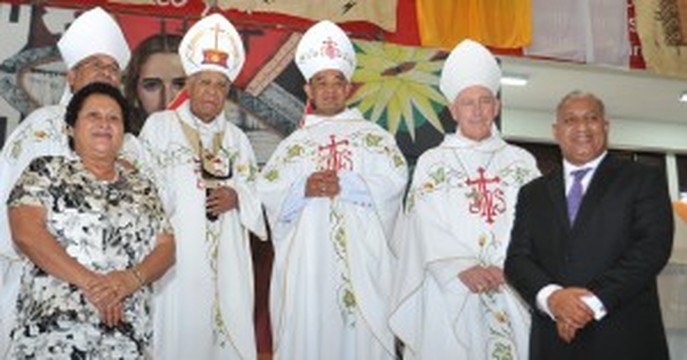"History shows that I Taukeis featured prominently in Fiji’s coups. All the coups except the 2000 coup involved the overthrow of an I Taukei-led government by either I Taukei militants or the I Taukei led military. Two I Taukei-dominated institutions, namely the Methodist Church and the RFMF, have played influential roles in the coups and moreover, I Taukei political actors and institutions have dominated Fiji’s political history." | "How is the evolution of I Taukei power related to the coup culture? The perpetrators of the 1987 and 2000 argued that the coups were carried out to protect I Taukei interests. They were supported by the mainstream I Taukei political bloc (Chiefs, the Bose Vakaturaga, and the I Taukei political bloc). The mainstream I Taukei political bloc is a product of British colonial rule and the myth of cultural homogeneity. In other words they inherited the myth of cultural homogeneity from the colonial government. They represent a political view that is not I Taukei but rather British. We can further argue that although Fiji is an independent nation, it is yet to be decolonized and democratized. The myth of cultural homogeneity therefore offers a hermeneutical key to the understanding Fiji’s coup culture." |
The Path Towards Democracy: "My investigation verified that patron-client politics defines the form of power of the mainstream I Taukei political establishment. I therefore argue that patron-client politics breeds the “coup culture” and the loss of democracy. Therefore, to resolve Fiji’s coup culture and facilitate the path towards democracy, politicians and political institutions must go beyond patron-client politics. I contend that without the displacement of patron-client politics there will be little hope of building a democratic Fiji. The patron client politics must be eradicated."


